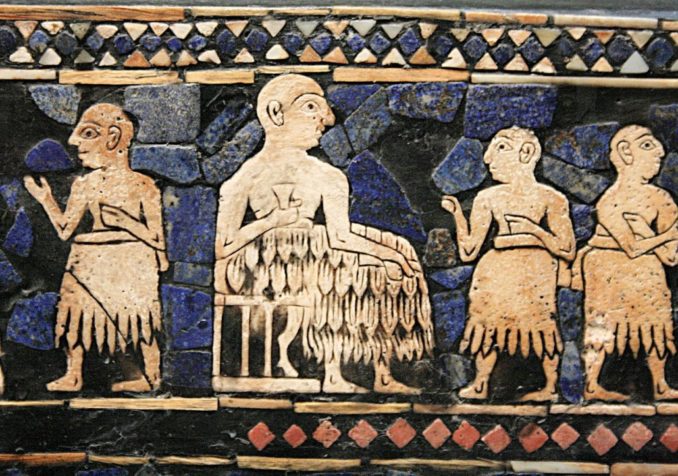
Michel wal (travail personnel (own work)), CC BY-SA 3.0, via Wikimedia Commons
Having been born into and grown up within the never-ending promise of prosperity guaranteed by Keynes’s gospel that saved us all from the purgatory of the Depression, I like others only began to see a certain absence of clothing when my personal capacity to grow earnings and savings was extinguished by retirement and the silent tax of inflation. We have all been believers in the commune-istic version of economics, wherein what matters is aggregate demand of the whole of society which is to be provided by continued expansion of the supply of a commodity called currency and credit based in our faith in the god of government. As we enlarge entitlements for almost everything to nearly all, we conspire through inattention and wishful thinking in the ultimate “tragedy of the commons”. Our country was, after all, founded in a commune, and that tragedy ended in disease and starvation until the more primitive concepts of individual productivity and responsibility were forced upon those first colonists. This requisite interdependence led to a flourishing of our economic and political freedoms as long as the resources of our manifest destiny seemed unbounded. Much later the basis of economic survival was more broadly stated by a disciple of Ludwig von Mises, Friedrich Hayek, when he explained the “knowledge problem”—that the best use of resources available at any time and place can only be known to individual members of a society. Economically, Malcom Gladwell’s “wisdom of crowds” resides only in the individuals of that crowd, not the collective distant government. As humanity has evolved socially from isolated family groups through nation-states into globalism, how have human actions in economics evolved?
The keystone of early man’s survival was autarky. Family-based groups existed by subsistence, producing all they might need themselves from resources at hand. The transition from extended self-sufficient family groups to tribalism may have been coincident with the transition from hunting-gathering to domestication of animals and plants, enabling survival of larger groups in more well-defined geographic territories. Although these larger groups continued to produce all they needed independently, perhaps specialization in productivity began to emerge as well. Several members might be more skilled in making spear points, others in tanning hides. As larger groups ventured farther afield, they gained opportunities to sample different resources from other groups, and barter trade developed. This exchange was based in mutually agreed perceived value of those resources. Somewhere in this process labor, the first service resource, became exchangeable as well as goods. Coincidentally slavery, almost universal in its distribution, developed first as a feature of warfare, then of credit, eventually evolving to indentured servitude. The use of energy to expand production had already begun with the discovery and use of fire for cooking, heat, hunting, and clearing of land for crops. Technology’s most primitive contributions included methods of containment and transport of goods as well as such simple items as a fallen log across a chasm or stream to allow crossing. Wayfaring by dugout, canoe, and other vessels allowed both rapid expansion of human groups through new territories and access to new resources of goods, services, and knowledge. Acquisition and use of these on a broader routine basis relieved groups of the requirement of autarky, favoring widening relationships of trade.
The widening relationships of trade amongst groups naturally led to the “invention” of credit and debt. Goods or services of mutually agreed perceived value were not always available for direct barter. After prior trade had established an atmosphere of trust, two individuals or groups might easily agree to exchange a current good or service in return for future “payment” in different goods or services. With these concepts the idea of interest arose, an additional payment to the lender for loss of use of the loaned resource during the term of lending, and recognition of possible risk of not returning the loaned resource in toto. Many cultures (Islam; the early Christian church, e.g.) forswore interest as taking unfair advantage of the credit/debit exchange. This first “financial” service, credit/debt, enabled massive expansion of trade and human economies and served as the basis for all economic life for most of humanity’s history. Sumerians developed writing as a new economic technology primarily to keep track of these debits and credits. Later papyrus enabled broader purposes of writing, the recording and exchange of knowledge resources.
© Nik Bednarski, M.D. 2023


